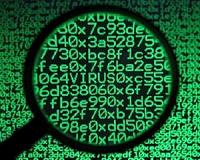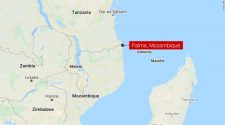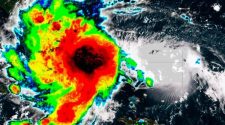Corporations, individuals and governments are looking for ways to harden systems against hacking, which is why a Washington, D.C.-based company, Equator Corporation, licensed a unique, patented NASA cybersecurity technology this year.
Equator worked with the Strategic Partnerships Office (SPO) at NASA’s Goddard Space Flight Center in Greenbelt, Maryland, for an exclusive license to the technology. As a tool in the fight against cyberattacks, the innovation utilizes unique attributes not employed by other approaches.
“This is a great opportunity for NASA’s technology to help increase the security of network systems across the country,” said Eric McGill, a senior technology manager with SPO.
“Combined with additional Equator proprietary tools, the ability for hackers to gain access and take data from protected systems is stopped with our technology,” said Robert Woods, president and CEO of Equator.
Data breach rates and severity are on the rise, with consequences for corporations and consumers that include identity theft and liability for loss of sensitive information. Companies that fall victim to data breaches also incur an unfavorable brand image, and significant monetary penalties are being imposed for failing to keep data secure.
The NASA cybersecurity technology is a monitoring system that analyzes data for suspicious behavior. It collects appropriate user information from devices, workstations and facilities to identify the behavior patterns of authorized individuals. The system can detect activity that seems to be new or unauthorized based on its ability to continuously collect and analyze authorized behavior from multiple locations.
Developed to rapidly identify unauthorized users without requiring major infrastructure changes, the technology was developed by inventors at Goddard and NASA Headquarters who wanted to find new ways to improve cybersecurity within the agency.
“What we’re finding is that the lack of sufficient corporate action to protect their systems is leading to increased government fines and court action from consumers affected,” Woods stated. “We’re starting to see companies being held accountable, and therefore the executives are taking notice and acting to reduce the risk.”
Founded in 2008 by Woods, Equator Corporation provides services in cybersecurity, project management, engineering, technical management and training to a host of clients, including NASA.
Woods said that the technology will serve as part of his company’s holistic approach to cybersecurity. As businesses, universities, governments and individuals grapple with the ever-evolving threat of data breaches, Equator plans to implement the technology to provide needed protection.
Related Links
Strategic Partnerships Office at NASA
Cyberwar – Internet Security News – Systems and Policy Issues
|
We need your help. The SpaceDaily news network continues to grow but revenues have never been harder to maintain. With the rise of Ad Blockers, and Facebook – our traditional revenue sources via quality network advertising continues to decline. And unlike so many other news sites, we don’t have a paywall – with those annoying usernames and passwords. Our news coverage takes time and effort to publish 365 days a year. If you find our news sites informative and useful then please consider becoming a regular supporter or for now make a one off contribution. |
||
|
SpaceDaily Contributor $5 Billed Once credit card or paypal |
SpaceDaily Monthly Supporter $5 Billed Monthly paypal only |
|
World’s Most Powerful RF Emulator to Become National Wireless Research Asset
Washington DC (SPX) Sep 05, 2019
Over the past three years, DARPA’s Spectrum Collaboration Challenge (SC2) has relied on a custom-built virtual testbed called the Colosseum to host thousands of competitive matches and scrimmages, which will include the final match to determine the winner of the $2 million grand prize.
Supporting SC2’s mission to reimagine new spectrum access strategies in which radio networks autonomously collaborate to determine how the RF spectrum should be used moment-to-moment required the development of a re … read more




















